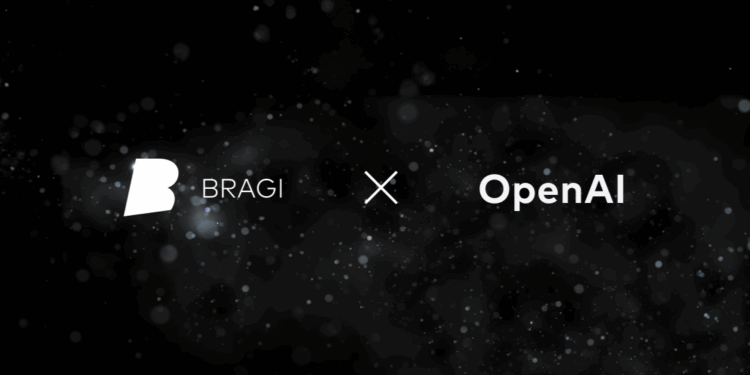Bragi, together with OpenAI, has introduced a new app called ChatAI. It brings artificial intelligence to headphones and audio devices. The app is based on GPT-4.1 and allows users to access a voice assistant directly via voice command or the push of a button. This allows them to query information, take notes, or answer questions – all without a smartphone screen.
Bragi is still known to many as a manufacturer of wireless headphones. Since 2019, however, the German company has focused on licensing its technology. The goal is to help other brands integrate modern headphone features. Bragi collaborates with Bose, among others, in this area. With the introduction of ChatAI, Bragi is now opening a new frontier: headphones that come with GPT integration out of the box.
An AI assistant in your ear
ChatAI functions as an interface between the user and OpenAI. As soon as the voice assistant is activated via the headset, a local model processes the voice input. It formats the request and sends it to OpenAI. The response is then read aloud through the headset. This is based on GPT-4.1, a generative AI model that is also used in ChatGPT.
Data protection without compromise
According to Bragi, ChatAI does not store any user data. The company's servers do not receive any information, and no data is stored locally after it has been sent to OpenAI. Additionally, ChatAI recognizes the user's voice to prevent accidental recording of ambient noise. This measure is intended to ensure greater security and privacy.
Integration with iOS planned
Bragi is also working with Apple on MFi certification. This will ensure that the assistant runs smoothly even in the background on iOS. The goal is seamless integration into Apple systems. Whether and when Android devices will benefit in a similar way is not yet known.
Customizable for brands
Bragi offers third-party developers the ability to customize ChatAI. Manufacturers can integrate their own features and user experiences. These include, for example, smart EQ settings that automatically adjust based on listening habits or ambient conditions. Learning assistants that adapt to personal preferences are also part of the platform strategy.
Multilingualism from the start
ChatAI will initially support five languages: English, German, French, Spanish, and Chinese. More languages are already planned. Bragi observes that users in different countries use the AI functions differently. In China, translations are particularly in demand, often in meetings as an additional means of communication. In other regions, the use is more diverse – from navigation to productivity.
Market research shows high interest
Bragi conducted a survey to analyze market interest in AI-enabled headphones. The result: 89 percent of respondents would be willing to pay an average of $25 more for headphones with AI integration. This would increase the average selling price to between $135 and $160. This provides a clear incentive for manufacturers to adopt the technology.
ChatAI availability
The ChatAI app is scheduled for release this summer. The exact date for the first headphones with ChatAI to hit the market depends on the respective brand partners. Bragi provides the platform, but the actual launch rests with the manufacturers.
ChatAI as the new basis for smart headphones
ChatAI is a practical step toward smart audio applications. The combination of local preprocessing, GPT 4.1 support, data protection, and adaptability makes the system attractive to both developers and users. Bragi is thus launching not only a new app but also a flexible platform for AI in the audio sector. (Image: Bragi x OpenAI)
- AirPods: How to install the public beta version
- Apple has 18 months to make progress on the AI platform





